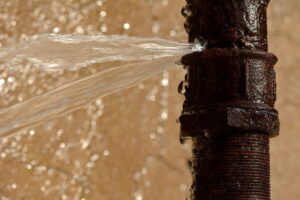 We’ve all seen those movies or TV shows when a character walks into their home on a rainy day to discover water pouring from a spot on their ceiling. There are usually buckets involved and as dramatic as it is, it’s also usually resolved pretty quickly.
We’ve all seen those movies or TV shows when a character walks into their home on a rainy day to discover water pouring from a spot on their ceiling. There are usually buckets involved and as dramatic as it is, it’s also usually resolved pretty quickly.
We have some bad news for you. Fiction is definitely not reality. The truth is, most leaks are actually from plumbing systems, not damaged roofs and rainy days. And once they’re coming through your ceiling or drywall, they’ve gotten really bad. They’ll require professional plumbing repairs and probably repair to your property as well.
We’d like to help you avoid getting this far. Fortunately, there are some ways you may be able to detect a leak before that leak grows dramatic-movie-worthy. Read on as we uncover the top 5 signs that you have a plumbing leak.

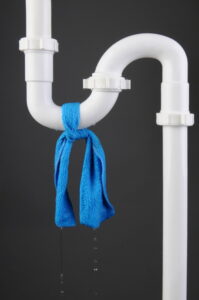 How are you spending this holiday season? We know, it’s going to look a lot different this year. But hopefully, you’re able to enjoy festivities with your immediate family or even a small group of friends who are part of your “quaranbubble.”
How are you spending this holiday season? We know, it’s going to look a lot different this year. But hopefully, you’re able to enjoy festivities with your immediate family or even a small group of friends who are part of your “quaranbubble.”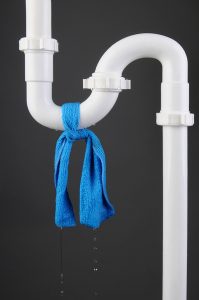 One of the most common reasons we get called for professional
One of the most common reasons we get called for professional 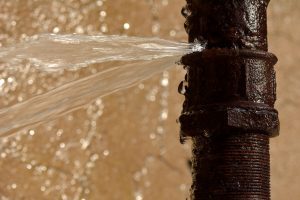 One of the most common, and equally annoying, plumbing problems a homeowner can face is that of a leak. While some plumbing problems make themselves pretty well known right away—a lack of hot water from your water heater, a running toilet—leaks can be subtle and can even be hidden in pipes behind walls and beneath the floor.
One of the most common, and equally annoying, plumbing problems a homeowner can face is that of a leak. While some plumbing problems make themselves pretty well known right away—a lack of hot water from your water heater, a running toilet—leaks can be subtle and can even be hidden in pipes behind walls and beneath the floor.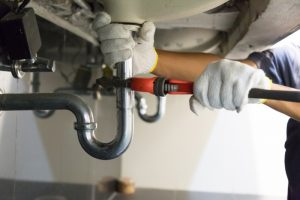 Let’s get straight to it–no, knocking pipes don’t automatically spell trouble. But they certainly can lead to problems if you just ignore them. And knocking pipes are easy to ignore at first. Sure, it’s a little alarming the first time you hear it, but it’s not that loud, and it’s easy to get used to.
Let’s get straight to it–no, knocking pipes don’t automatically spell trouble. But they certainly can lead to problems if you just ignore them. And knocking pipes are easy to ignore at first. Sure, it’s a little alarming the first time you hear it, but it’s not that loud, and it’s easy to get used to. They’re bad news—that’s what!
They’re bad news—that’s what!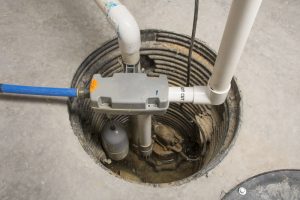 How often do you think about your sump pump? If your answer is “rarely,” you might be doing a disservice to yourself and your home. Households in this area are susceptible to flooding—there’s no denying that. But the good news is that it can be prevented, with a professionally installed and adequately cared-for sump pump.
How often do you think about your sump pump? If your answer is “rarely,” you might be doing a disservice to yourself and your home. Households in this area are susceptible to flooding—there’s no denying that. But the good news is that it can be prevented, with a professionally installed and adequately cared-for sump pump.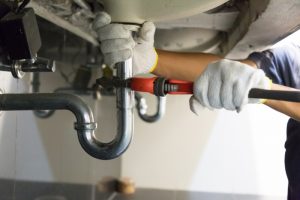 Can’t a general handyman, or even a diligent homeowner, where you’d need to pay less money, do just as effective a job as a professional
Can’t a general handyman, or even a diligent homeowner, where you’d need to pay less money, do just as effective a job as a professional 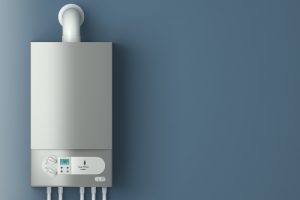 Storage tank water heaters are large, always noticeable, and can even be a little noisy. In other words, it’s pretty hard to not pay some attention to a conventional water heater, if that’s what you have in your home. You likely know that it needs occasional maintenance from a professional
Storage tank water heaters are large, always noticeable, and can even be a little noisy. In other words, it’s pretty hard to not pay some attention to a conventional water heater, if that’s what you have in your home. You likely know that it needs occasional maintenance from a professional  A lot of homeowners think any plumbing job can be a DIY-project. It’s true that in some cases this can be okay. For instance, perhaps you have a superficial clog that’s near the drain surface of your sink, and you can just eliminate it with a plunger or maybe even a drain snake.
A lot of homeowners think any plumbing job can be a DIY-project. It’s true that in some cases this can be okay. For instance, perhaps you have a superficial clog that’s near the drain surface of your sink, and you can just eliminate it with a plunger or maybe even a drain snake.